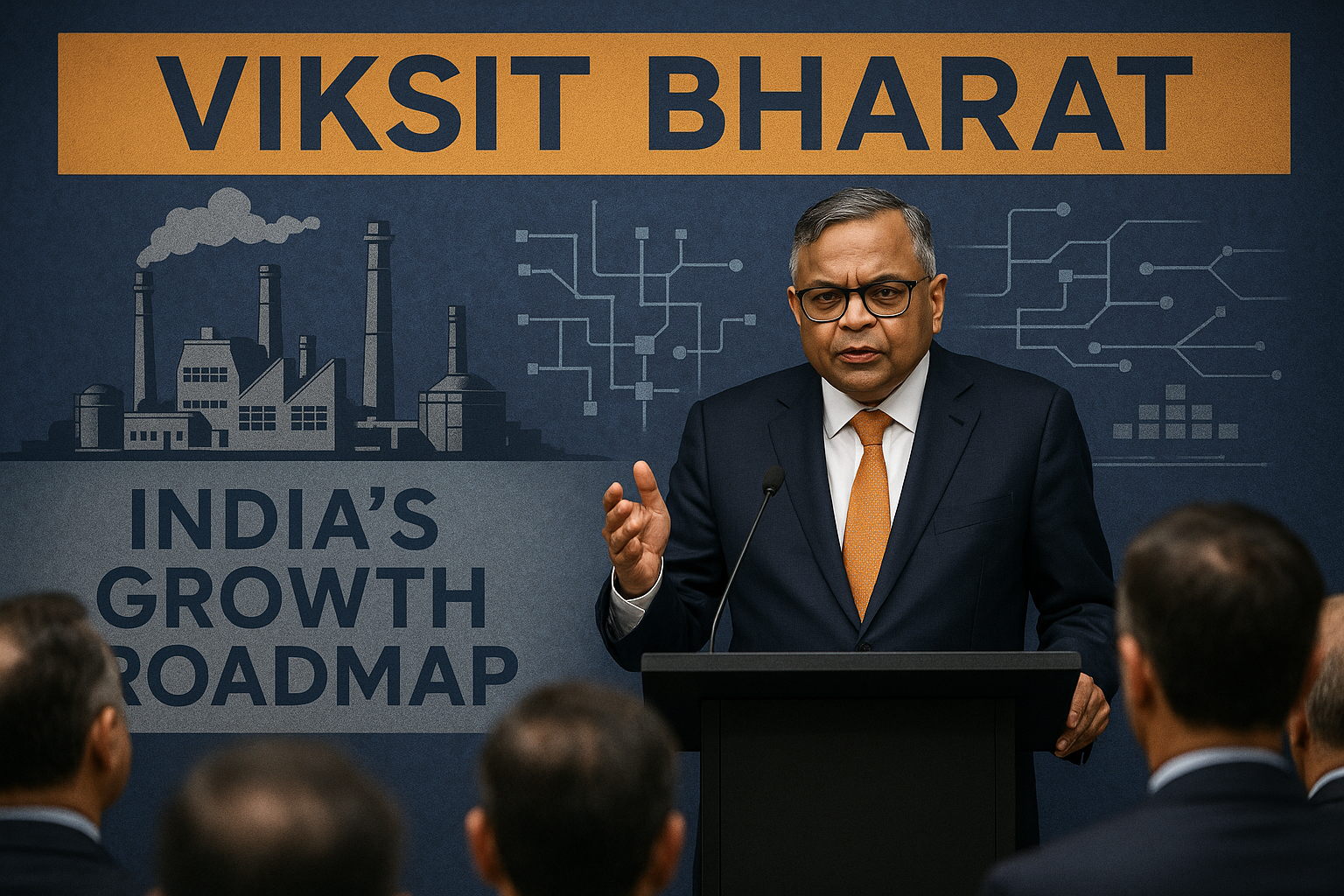Tata Sons Chairman N. Chandrasekaran has called on Indian industry to actively participate in the nation’s journey towards ‘Viksit Bharat’, arguing that economic and social progress cannot rest on the government alone. Speaking at an IFQM symposium, he stressed that quality, excellence, and collaboration across industries—including MSMEs—are crucial for global competitiveness. His message reflects a broader push for businesses to align with reforms and contribute to long-term development goals.
Core Development
Chandrasekaran urged businesses to see Viksit Bharat as a collective mission. He noted that while government policies are laying the groundwork, execution depends on industry’s willingness to invest, innovate, and adopt world-class practices.
He highlighted the role of MSMEs, calling them the backbone of manufacturing, and emphasized the need to raise their standards of excellence to ensure global relevance.
Key Drivers / Issues
India’s transformation is unfolding amid global uncertainties—geopolitical conflicts, supply chain disruptions, labour mobility issues, and production constraints. Against this backdrop, reforms such as GST rationalization, FDI liberalisation, and infrastructure expansion provide businesses with a unique opportunity to act.
Stakeholder Impact
For industry leaders, the call is to step beyond profit and take ownership of national growth. MSMEs are expected to modernize and integrate into global supply chains. Consumers stand to gain from better-quality products and services. For the government, stronger private sector engagement would accelerate progress towards developed-economy status.
Industry & Policy Reactions
Chandrasekaran emphasized that “India needs to be counted for producing products and services at the highest levels globally.” His remarks align with the government’s push for industry–government collaboration and echo calls from policymakers for greater private investment. Analysts suggest his speech reflects a growing consensus that reforms alone are insufficient without private sector execution.
Challenges Ahead
Despite reforms, businesses may hesitate due to uncertain global demand, volatile energy prices, and competitive international markets. MSMEs, in particular, face challenges of financing, technology adoption, and compliance with global standards.
Strategic Outlook
Industry participation will determine whether India’s vision of Viksit Bharat becomes reality. With the government providing policy momentum, the onus lies on businesses—large and small—to deliver on quality, innovation, and execution. If industry steps up, India can strengthen its claim as a globally competitive economy.
Why This Matters
‘Viksit Bharat’ is more than a policy slogan; it is a shared responsibility. Without industry’s commitment to quality and global standards, government reforms alone cannot ensure India’s transition to a developed nation.












